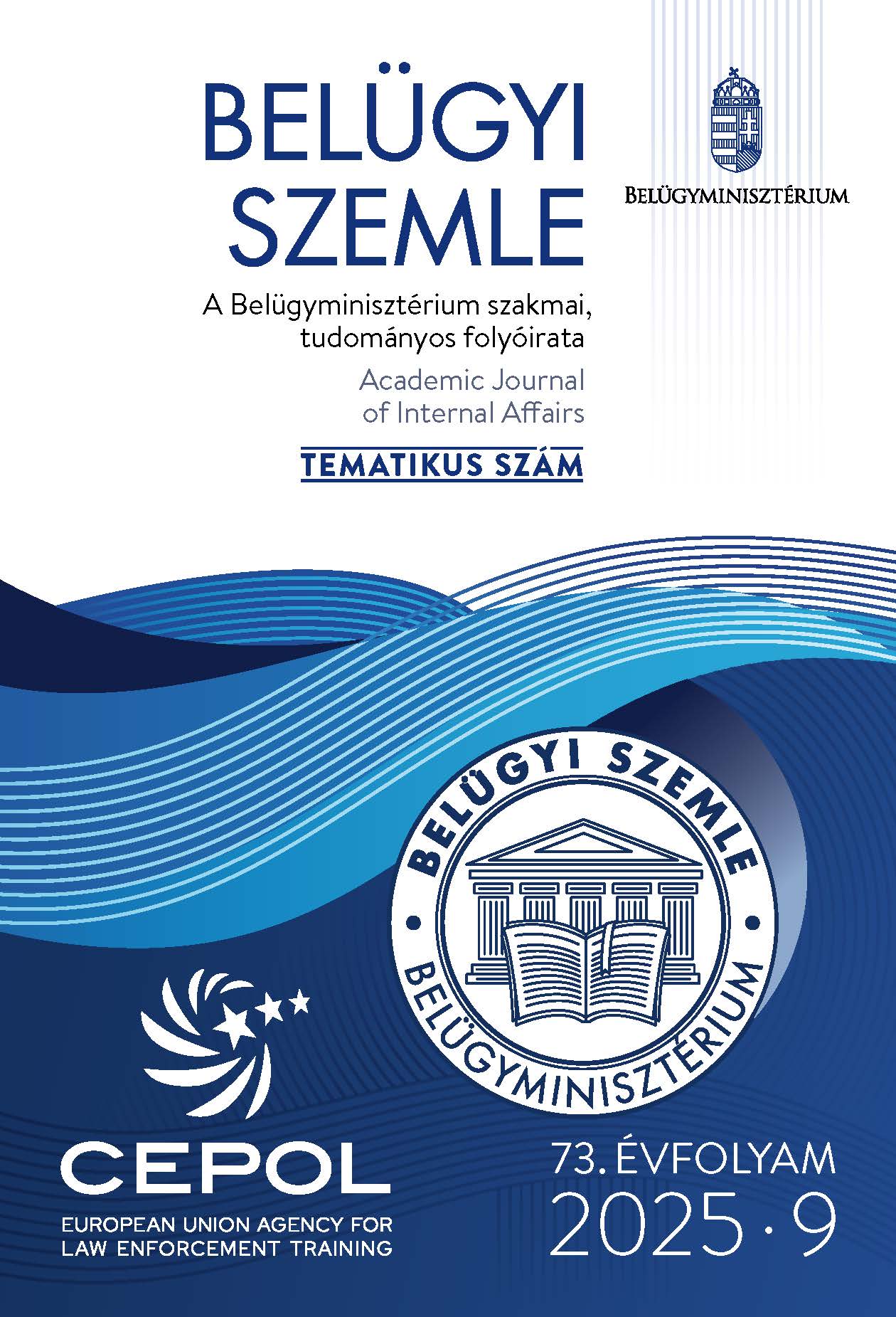Abstract
Aim: This study examines the opportunities available to individual countries to act jointly and effectively against cross-border crime, with particular emphasis on the potential embedded in education.
Methodology: In addition to the legislation, recommendations, and best practices related to CEPOL’s functioning, the study presents European Union law enforcement training based on the author’s personal experience.
Findings: Beyond tracing the development and operation of CEPOL, the study provides insights into why a unified European law enforcement training system is important and necessary.
Value: The paper is practice-oriented and seeks to offer a comprehensive overview of CEPOL’s role and history.
References
CEPOL. (2023). CEPOL New Strategy 2023–2027.
Council of the European Union. (2010). EU Policy Cycle.
Council of the European Union. (2010). Stockholm Programme.
Horváczy, E., & Magyar, I. (2013). A Rendészeti képzés az Európai Unióban [Law enforcement training in the European Union]. BM NOK.

This work is licensed under a Creative Commons Attribution-NonCommercial-NoDerivatives 4.0 International License.
Copyright (c) 2025 Academic Journal of Internal Affairs
